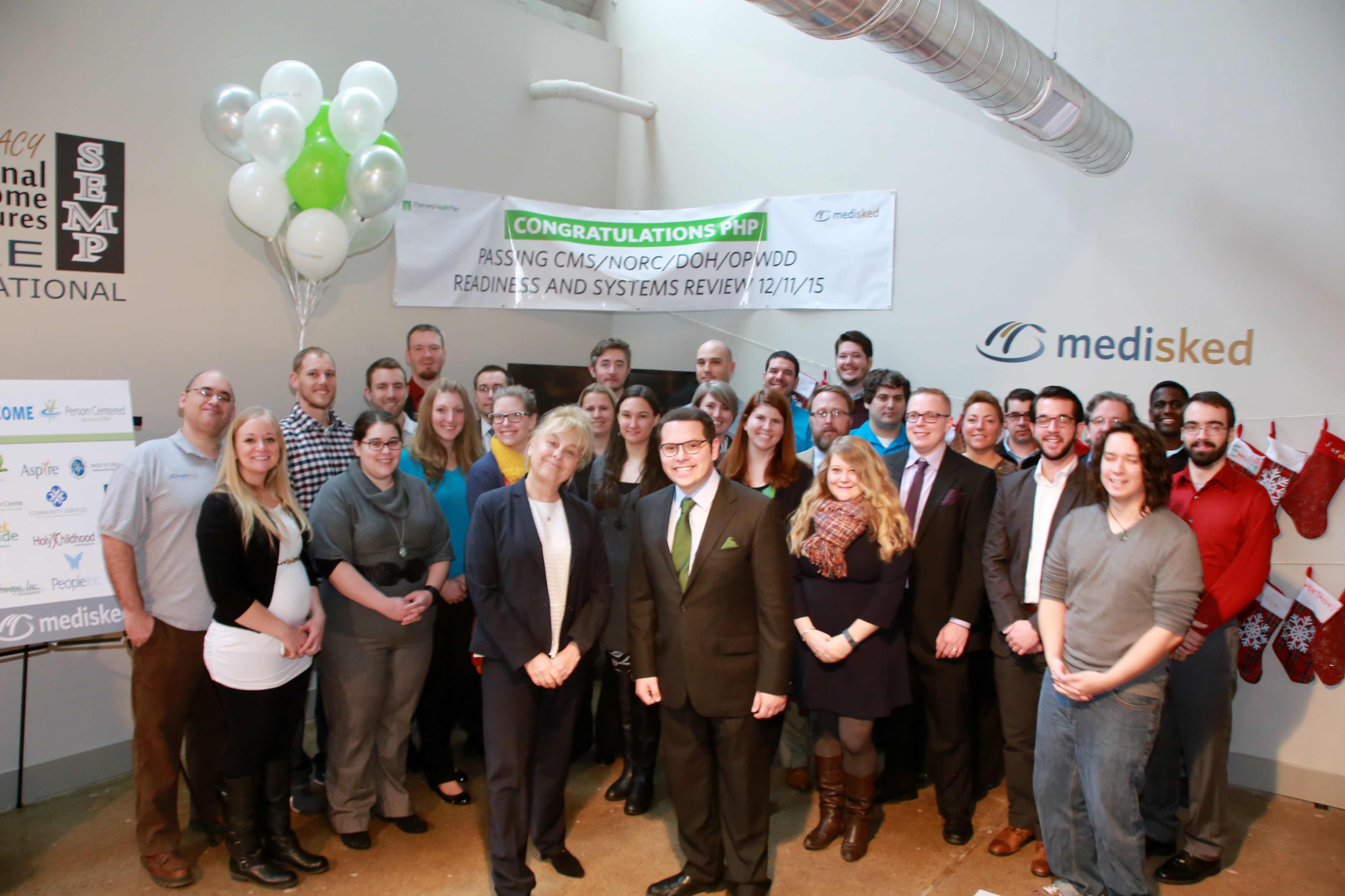If you use MediSked Connect and you're not part of the conversations happening on our MediSked User Group Discussion Board, you're missing out!
The Connect User Group Discussion Board is available 24/7 and we encourage you to use it to ask questions, make suggestions, and communicate best practices from user-to-user, with involvement from MediSked Connect resources.
And trust me when I say, we're reading/listening! The MediSked Connect Development and Product Management organizations rely heavily on feedback from Connect users and we use it to make the software even better.
If you submit a new idea or your feedback to the MediSked User Group Discussion Board between today and the Q4 User Group Meeting on January 21st, 2016, you'll receive a MediSked User Group Mug for your participation.
We'll pick one of your posts to share live at the Q4 User Group Meeting, and send the author a M.U.G. Mug filled with goodies!

The MediSked Blog
Elizabeth Chatterton
Recent Posts
Submit an idea to the MediSked User Group Board & Get a M.U.G. mug
Posted by Elizabeth Chatterton on Tue, Dec 22, 2015 @ 03:34 PM
Today is a Day for Celebrating: PHP Passed the CMS Readiness Review & A Whole New Kind of Managed Care is Happening in NY
Posted by Elizabeth Chatterton on Thu, Dec 17, 2015 @ 04:34 PM
Today has been a very exciting day at the MediSked Office in Rochester, NY.
This morning we were joined by Dr. Jan Abelseth from Partners Health Plan and together we celebrated PHP's latest big accomplishment - passing the CMS Readiness Review.
We’re incredibly proud to have designed and developed the systems and solutions that make New York State's new model of managed care possible and we are absolutely thrilled that the auditors were so impressed.
If you're not familiar with this new FIDA-IDD or our person-centered comprehensive assessment that's integrated with a fully electronic life plan / individualized service plan and linked directly to habilitation plans, active treatment plans, and individual protective oversight plans you can read about it here:
BIG NEWS! CMS & New York State Partner to Coordinate Care for Medicare-Medicaid Enrollees with Intellectual and Developmental Disabilities: Technology Powered by MediSked
If you are familiar, just enjoy these celebratory photos and be on the look out for more tomorrow because our holiday party is tonight (cheers!)
Read More
If You Read One Piece of Journalism Today - Make It This One
Posted by Elizabeth Chatterton on Fri, Dec 11, 2015 @ 09:40 AM
Ok, so it's not actually this piece of journalism that you should read - and it's not really just one piece. It's five.
But hear me out...because it's worth it.
The Star Tribune just wrapped up a five day special report project titled A Matter of Dignity, which takes a look at how Minnesota isolates and marginalizes thousands of adults with disabilities.
The issues they tackle are not just issues in Minnesota. Each article is brilliantly written, poignant, thought-provoking, and honest. The stories they tell are real and the accompanying photos are just as exceptional and so full of truth and emotion.
If you don't have time to read them now, I urge you to bookmark the page and read them when you do have time. You won't regret it.
Tags: ID/DD News
New CDC Data Shows No Drop In Cerebral Palsy Prevalence
Posted by Elizabeth Chatterton on Wed, Dec 09, 2015 @ 04:05 PM
About 2.2 out of 1,000 children born in 2002 were diagnosed with congenital cerebral palsy – stemming from brain damage before or during birth – according to findings published online earlier today in the journal Pediatrics.
That’s actually a slight increase over the 1985 numbers, where 1.9 per 1,000 were identified.
CDC researchers also found that rates of cerebral palsy varied significantly by race with black children more likely to have the condition as compared to white kids.
The findings indicate that improved care hasn’t lessened prevalence of Cerebral Palsy, though the number of children with co-occurring intellectual disability has declined.
“It is encouraging that the prevalence of congenital spastic CP did not increase over the 17-year time period, yet the absence of decline underscores the continued need for resources and support of children with CP and their families, as well as accelerated focus on understanding risk factors, targeting prevention strategies and reducing disparities,” wrote Kim Van Naarden Braun of the CDC’s National Center on Birth Defects and Developmental Disabilities.





